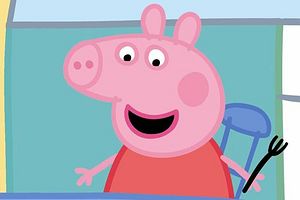January 15, 2015

Top academic publisher the Oxford University press has issued guidance that authors should avoid using pork-related words.
The move was revealed during a BBC discussion on free speech in the wake of the Paris terror attacks on satirical magazine Charlie Hebdo.
Today Programme presenter Jim Naughtie, who is married to writer Eleanor Updale, said: "I've got a letter here which was sent out by Oxford University Press to an author doing something for young people.
"Among the things prohibited in the text that was commissioned by OUP was the following; 'Pigs (plus anything else which could be perceived as pork.'"
He added: "Now, if a respectable publisher tied to an academic institution is saying you've got to write a book in which you cannot mention pigs because some people might be offended, it's just ludicrous. It is just a joke."
The guidance was condemned by Muslim Labour MP Khalid Mahmood.
"That's ludicrous," he said. "That's absolute, utter nonsense and when people go too far that actually brings the whole discussion into disrepute."
The OUP defended the guidance by saying it needs to make its books available to the widest audience possible.
A spokesman told the Daily Mail: "Many of the educational materials we publish in the UK are sold in more than 150 countries, and as such they need to consider a range of cultural differences and sensitivities.
"Our editorial guidelines are intended to help ensure that the resources that we produce can be disseminated to the widest possible audience."
In a statement later, the company said: "OUP’s commitment to its mission of academic and educational excellence is absolute.
"Our materials are sold in nearly 200 countries, and as such, and without compromising our commitment in any way, we encourage some authors of educational materials respectfully to consider cultural differences and sensitivities.
"Guidelines for our educational materials differ between geographies and do not cover our academic publishing."
Jewish leaders said their religion prohibits pork being eaten - not the mention of the word.


